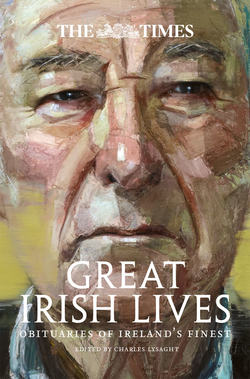Читать книгу The Times Great Irish Lives: Obituaries of Ireland’s Finest - Charles Lysaght - Страница 12
ОглавлениеEARL OF ROSSE
2 NOVEMBER 1867
OUR OWN CORRESPONDENT in Dublin writes:-
The Earl of Rosse died yesterday, after a protracted illness, at his residence in Monkstown, County Dublin. In the world of science a death will leave a blank which the most distinguished of his associates will long view with painful concern. This was the sphere in which his great qualities could alone be appreciated, and where his genius shone amid the brightest of those who have adorned the age in which they lived. He was the eldest son of the second earl, and was born on the 17th of June, 1800, in the city of York. In 1818 he entered Trinity College, Dublin, and in the following year passed into residence in Magdalen College, Oxford, where he graduated in 1822. The bent of his mind was shown at this early period by the distinction which he obtained as a first-class honour man in math-ematics. About this time he was induced to enter public life, and, as Lord Oxmantown, was elected representative of the King’s County, a position which he retained until the end of the first Reformed Parliament. He also sat for a while as a representative peer. His talents, however, had no congenial field in the Legislature, and his career was not marked by any brilliant feat of eloquence or statesmanship. Though he shrank from the prominence of a Parliamentary debater, he occasionally spoke on subjects on which he felt it due to his constituents to express his opinions. Among the more remarkable was Mr Whitmore’s motion for a committee of the whole House to consider the Corn Laws. He was opposed to the policy of repealing them, and showed the effect which it would have, especially as regards this country. He resisted Mr Hume’s motion for the abolition of the Lord Lieutenent on the ground that it would increase absenteeism. … After retiring from Parliament Lord Rosse applied himself with greater zeal and assiduity to the pursuit of astronomical science. He conceived the noble purpose of surmounting the difficulties which stood in the way of a more accurate observation of the heavenly bodies, and with unexampled patience and persistent energy applied himself to the self-imposed task. His wonderful mechanical skill and scientific knowledge enabled him ultimately to achieve his object. It was not until after repeated experiments and failures, which would have daunted a less determined or enthusiastic worker, that he at last succeeded in producing those magnificent instruments which have won for him European fame. The art of making reflecting telescopes of vast compass and power may be said to have originated with him, and has certainly been brought by his unwearied diligence and inventive sagacity to a perfection which before he undertook the task would have been pronounced impossible. No work can be imagined of more exquisite delicacy, and his success in overcoming the complicated difficulties which arose at every step is a marvel of patient ingenuity. The mirror of Lord Rosse’s largest telescope is a circular disc of metal weighing four tons, and measuring six feet in diameter; and a faint conception of the obstacles which he had to encounter may be formed when it is remembered that, in order to collect the utmost possible amount of light, which is the great object of reflectors, it must be slightly concave, about half an inch deeper in the centre than at the edge, and not exactly spherical, but varying from the spherical form only to the extent of the ten-thousandth part of an inch. The slightest variation of these conditions would produce a defective or distorted image. Lord Rosse not only succeeded in conforming to them, but attained to probably ten times greater precision. The shape, however, of the mirror is only one of the essentials. In adjusting the proportions of the copper and tin of which it is made, in guarding against the penetrating power of the molten mass which would make its way through the pores of cast iron – and wrought iron cannot be used, for the alloy would fuse with it – in the annealing, grinding, and polishing of the mirror, the latter process being performed by machinery, the resources of his inventive mind were displayed with marvellous effect. So completely did he master the minutest detail that those who desire to follow in his steps may pursue their course with perfect confidence. The value of the discoveries which his great instrument enabled him to make in the observation of nebuli, has been universally acknowledged. All the learned societies of Europe vied in doing him honour. In 1849 he was elected President of the Royal Society. He was elected a member of the Imperial Academy at St Petersburg, and was created a Knight of the Legion of Honour by the Emperor of the French, and a Knight of St Patrick by our most gracious Sovereign. He was Custos Rotulorum of the King’s County and Chancellor of the University of Dublin. He was also a President of the British Association. In politics he was a moderate Conservative, but held independent views on some leading questions. Though English in his birthplace and descent, he was strongly attached to this country by the ties of family, property, and sympathy.
